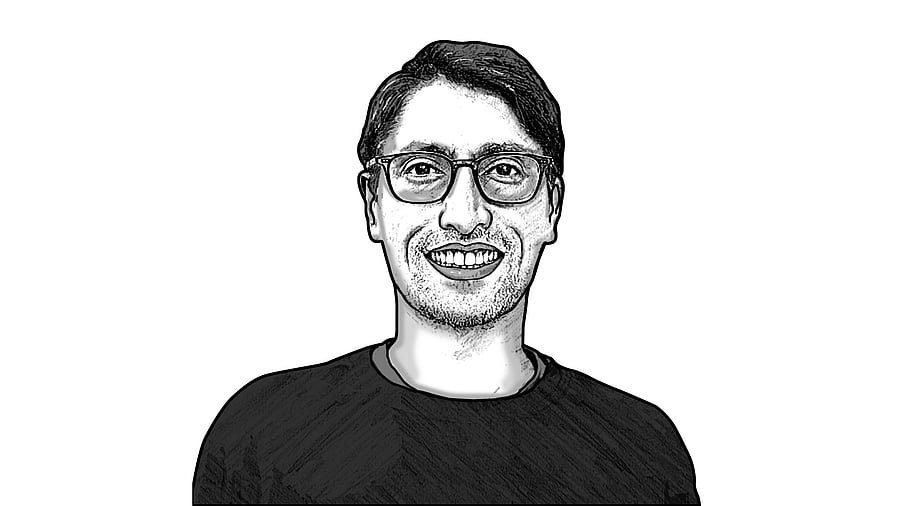
Aakash Singh Rathore as Dr Jekyll is a Professor of Philosophy, Politics and Law, author and editor of over 20 books and counting, and as Mr Hyde, one of India’s top-ranking Ironman triathletes  @ASR_metta
Filmmaker Anurag Kashyap has triggered a firestorm through his social media remark, Brahmin pe main mootoonga. He was meant to be defending his film Phule, an important biopic on social reformers Jyotirao and Savitribai Phule. The backlash against him was immediate: an FIR in Jaipur, complaints in Mumbai and Indore, and the inevitable charges under Section 295A of the Indian Penal Code (IPC) for outraging religious feelings. He has since apologised on social media, but the apologies dissatisfy both his supporters, who would have preferred that he doubled down, as well as his opponents, who are seemingly unsatisfiable.
Kashyap’s case exposes the universal tensions between freedom of expression and legal censorship. It’s a struggle that for me resonates with Buffalo Springfield’s 1967 protest anthem For What It’s Worth:
‘There’s something happening here/ What it is ain’t exactly clear/ There’s a man with a gun over there/ Telling me I got to beware’.
These lyrics capture the menace of Kashyap’s legal battle. The ‘man with a gun’ may symbolise the many vigilantes who have been threatening the filmmaker and his family with violence, rape, and death. But it may also symbolise the legitimate enforcers of IPC 295A – the police and the courts – wielding the power to forcibly silence him, warning Kashyap (and countless others) to ‘beware’.
But to beware what, and why exactly?
There are hate speech laws around the world, laws perennially challenged in Europe and North America because they stifle freedom of expression. These laws prohibit expressions of hatred against groups based on attributes such as religion, aiming to protect societal harmony and individual dignity. But we need to understand something fundamentally important about these hate speech laws. They were conceived, formulated, and are enforced to protect vulnerable minorities and the marginalised. Blacks in the USA, Muslims in the UK, Jews in Germany, and so on. This is not the case with IPC 295A.
IPC 295A was introduced under British rule, crafted amidst communal clashes. Criminalising deliberate acts intended to outrage religious feelings, the law sought to curb religious violence in India’s pluri-religious society. Before partition, the British mediated insults hurled from one Indian community to another. It is worth noting that there are no cases where the British used this law to protect themselves from insult. They, of course, had other tools like the sedition law (Section 124A) to suppress dissent.
Post-independence, IPC 295A remains a law that can be invoked to protect vulnerable and minority communities, but it is much more effective at prosecuting them. The law is frequently evoked by the majority and its dominant groups, silencing dissent. In this respect, IPC 295A has much less in common with hate speech laws around the world and much more in common with the blasphemy laws in Pakistan and Saudi Arabia. These are legal systems designed to protect majority religious sentiments, effectively marginalising minorities.
‘I think it’s time we stop, children, what’s that sound/ Everybody look what’s going down/ There’s battle lines being drawn/ Nobody’s right if everybody’s wrong’.
Pakistan’s Penal Code Section 295-C mandates life imprisonment or death for insulting the Prophet Muhammad, disproportionately targeting Christians. Saudi Arabia’s Sharia laws, enforcing Sunni Muslim orthodoxy, impose death penalties for blasphemy. Like IPC 295A, these laws entrench majority dominance – Hindus in India, Muslims in Pakistan, Sunnis in Saudi Arabia – stifling dissent under the guise of harmony.
Kashyap’s prosecution, driven by Brahmin complaints, mirrors this pattern. The law’s vague wording empowers dominant groups to wield it as a cudgel, turning personal offence into criminal cases. The powerful silence the provocative.
‘A thousand people in the street/ Singing songs and carrying signs/ Mostly say, hooray for our side’.
The mob-like outrage that fuels 295A cases, as we have seen with Brahmin groups who have rallied against Kashyap, perfectly parallel what we see in Pakistan, where crowds demand punishment for alleged blasphemers, and in Saudi Arabia, where the religious police enforce orthodoxy. This collective fervour drowns out dissent, leaving minorities and reformers like Kashyap vulnerable.
Overenthusiastic in his defence of Phule and his enterprise, Kashyap stepped out of line, and now the ‘men’ are coming for him. This is the polar opposite of hate speech laws, which serve to protect and empower the marginalised. IPC 295A too often serves the privileged, and thus it inverts the spirit of justice. It was not only colonial-era 124A that needed reform but 295A as well. The law needs to protect the vulnerable, not the dominant.
‘Step out of line, the men come and take you away/ It’s time we stop, hey, what’s that sound/ Everybody look what’s going down’.
Anurag Kashyap did not harm the religious feelings of a vulnerable minority, but of a dominant one. In other words, Kashyap committed blasphemy.